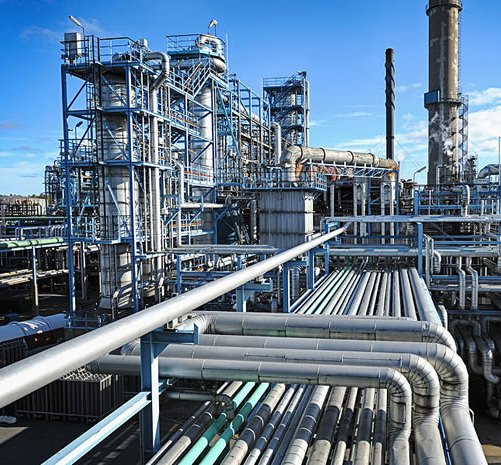Gas Producers Lament Regulated Low Prices, Power Sector Debt
Gas producers in the country have said the debt owed by the power sector and the regulated low prices of the commodity constitute a drag on gas development.
Operators and other stakeholders, including the Oil Producers Trade Section of the Lagos Chamber of Commerce and Industry and the Nigerian Gas Association, highlighted the need to address the challenges in the domestic gas market.
The Chairman, OPTS, Paul McGrath, said to realise the full benefits of gas as a catalyst for economic growth and diversification, several challenges across the entire gas value chain needed to be resolved.
According to him, the challenges include inadequate infrastructure along the value chain; regulated low prices, legacy debt related to gas and power supply and the challenging business environment.
“The commercial and financial structures of the gas-to-power commercial value chain remain weak with growing arrears and uncertainty in the payment system which disincentivises gas investors,” he said at NGA Business Forum in Lagos.
 McGrath added, “To date, Nigeria’s domestic gas prices are kept at a regulated low price, which does not cover the cost required to fully develop its gas resources.”
McGrath added, “To date, Nigeria’s domestic gas prices are kept at a regulated low price, which does not cover the cost required to fully develop its gas resources.”
He said of the 162 trillion cubic feet reported gas reserves in the country, about 75 per cent would require the building of new infrastructure to deliver the gas resources to the domestic market.
The OPTS boss said, “The current regulated gas price of $2.50 for one million British thermal units falls short of the price required to attract investment for these new gas developments.
“The gas sector should transit into a liberalised market based on the ‘willing buyer, willing seller’ principle and ensure the existence of a competitive fiscal regime to support upstream gas development.”
According to McGrath, Nigeria lacks sufficient pipelines to deliver gas from the fields where it is produced to the current and potential off-takers (e.g., power plants, manufacturers, etc.).
He said, “In addition, the transmission and distribution systems lack the capacity to deliver the generated electricity to businesses and other consumers. Building infrastructure requires a sustained joint effort of the stakeholders led by the government.”
He said active government support would help enable a stable investment climate, acceptable commercial terms and contractual risks, which would help in attracting the private investments required to strengthen existing off-takers and ultimately lead to emergence of new buyers and suppliers.
McGrath said, “For Nigeria, gas provides a unique opportunity to provide steady, widely-available, cost-effective and generally affordable power to everyone. A shift to gas-fuelled power generation would represent significant savings opportunities over sources such as diesel which is multiple times more expensive than gas at the current price of $2.5/mmbtu.
“Additional opportunity exists in leveraging gas to develop industries that use gas as feedstock, to produce methanol and ammonia used in fertiliser production.”
Citing Trinidad and Tobago as a good example of a country that had accomplished much with its gas resources, McGrath said, “With a small population of 1.4 million and only 11 Tcf of proven gas reserves, the country has developed a globally competitive petrochemicals industry.
“Today, Trinidad and Tobago is the world’s largest exporter of ammonia and second largest exporter of methanol leading to this industry contributing significantly to the country’s GDP. Nigeria, with significantly larger gas reserves, has the potential to achieve even bigger success.”
According to him, gas has a leading role as a key enabler to the diversification and growth of Nigeria’s broader economy through adequate power generation, provision of feedstock for value-adding manufacturing, and increased government revenue from Liquefied Natural Gas.
McGrath noted that the development of the nation’s vast gas resources and strengthening of the gas value chain should be a national priority.
“OPTS is well positioned to collaborate with the government and other stakeholders in this regard,” he added.
The President, NGA, Mrs Audrey Joe-Ezigbo, described gas development as critical in rapidly catalysing the attainment of the nation’s economic recovery and growth agenda.
She said, “The established correlation between the volume of gas consumed on the domestic front and the level of economic development of any nation provides the impetus for the current focus on growing our domestic gas industry.
“We must, as a nation, ensure we are more deliberate about gas-to-power, in-country value addition through gas-based industrialisation, and the building of local capacity if we are to rapidly impact positively on the socio-economic wellbeing and empowerment of our citizens.
“The world is counting on Nigeria to propel economic development using her natural gas resources as a catalyst. We recognise several strides that have been attained with Nigeria’s gas industry over the years but believe that the pace and scale of advancement must be rapidly accelerated in the interest of the entire nation.”
Source: Punch











16 thoughts on “Gas Producers Lament Regulated Low Prices, Power Sector Debt.”